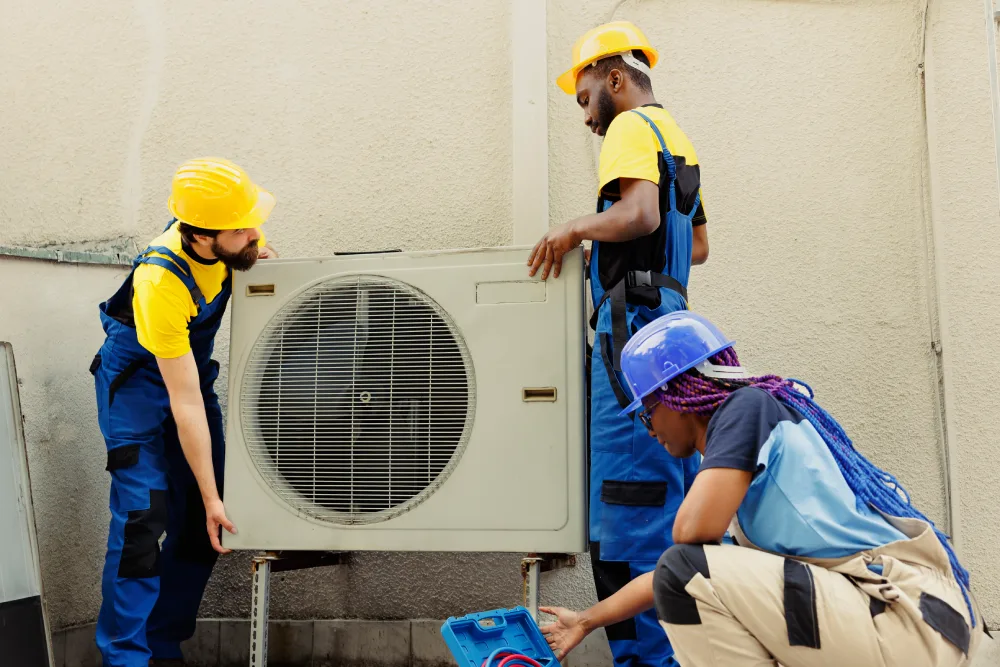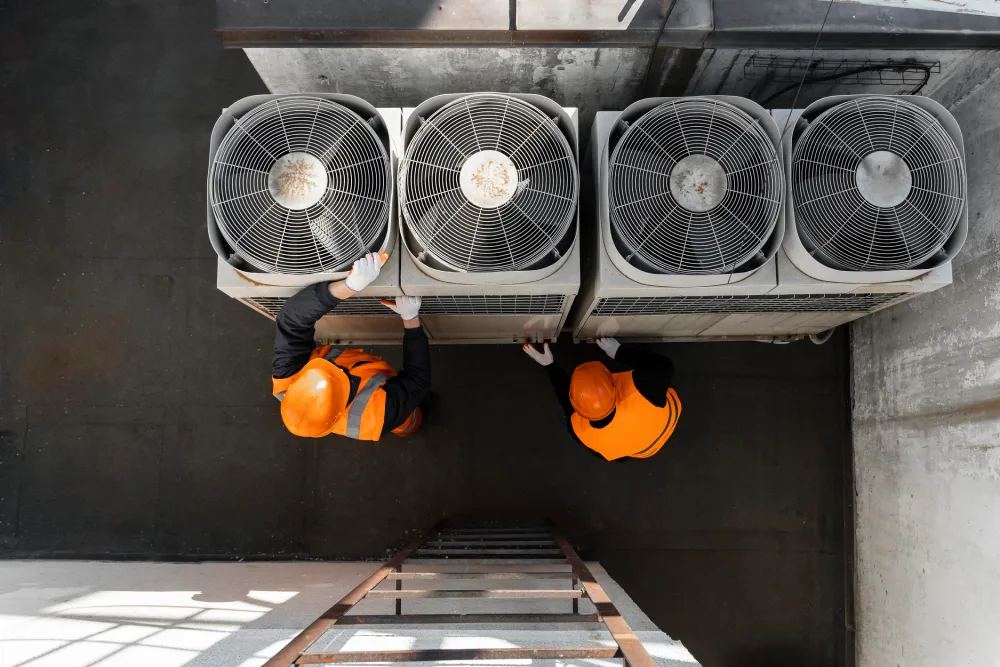Are you making the switch to a central air conditioning system? This AC unit can help you stay cool throughout the summer. Air conditioning systems are now very low maintenance and energy efficient. This appliance operates by compressing refrigerant gas and circulating it via a coil system to chill the air in key areas of your house. To assist you in determining if this AC system is a wise purchase, continue reading to learn the benefits of a central AC unit.
What is Central Air Conditioning
Central air conditioning refers to a cooling system that cools and dehumidifies indoor air throughout an entire building or home using a centralized unit. Unlike individual room air conditioners, which are designed to cool specific areas or rooms, central air conditioning systems are integrated systems that distribute cooled air through a network of ducts and vents to all rooms or zones within a building.
Key components of a central air conditioning system typically include:
- Outdoor Unit (Condenser Unit)
- Indoor Unit (Air Handler)
- Ductwork
- Thermostat
- Refrigerant
How Does Central Air Conditioning Work
Installing central air conditioning cools the air in one particular area of your house. Certain systems use fans to move the cooled air through your home’s ducting and into your rooms, while other systems do not need ductwork. Your house’s interior temperature is managed by one or more thermostats that you can adjust to your preferred level of comfort.
The cooling cycle begins when the thermostat detects that the indoor temperature has exceeded the desired setpoint. The thermostat signals the central unit to start the cooling process. The central unit’s blower fan draws warm indoor air through return air ducts, passing it over the evaporator coil. As the air moves over the coil, heat is transferred to the refrigerant, cooling the air. The cooled air is then distributed through supply air ducts to various rooms or zones within the building.
7 Benefits of Central Air Conditioning
Central air conditioning systems offer several benefits, including consistent temperature control, improved indoor air quality, energy efficiency, and space-saving design. They are commonly found in residential homes, commercial buildings, offices, and other large spaces where maintaining comfortable indoor temperatures is essential.
Consistent Temperature Control
Central air conditioning systems provide consistent cooling throughout the entire space, ensuring a comfortable environment regardless of the outdoor temperature. Unlike window units or portable air conditioners, which may only cool certain areas, central AC maintains uniform temperatures throughout the building.
Improved Indoor Air Quality
Many central AC systems include air filters that help remove dust, pollen, and other airborne particles from the indoor air. This filtration helps improve indoor air quality by reducing allergens and pollutants, creating a healthier living or working environment.
Energy Efficiency
Modern central air conditioning units are designed to be energy-efficient, with features such as variable-speed compressors, programmable thermostats, and high SEER (Seasonal Energy Efficiency Ratio) ratings. By efficiently cooling the entire space, central AC can help reduce energy consumption and lower utility bills compared to using multiple window units or inefficient cooling methods.
Reduced Noise Levels
Central air conditioning systems are typically quieter than individual room air conditioners. The noisy components, such as the compressor and condenser fan, are located outside the building, minimizing indoor noise levels. This can be particularly beneficial for businesses, creating a quieter and more comfortable environment for employees and customers.
Increased Property Value
Installing a central air conditioning system can enhance the value of a home or commercial property. Potential buyers or tenants consider central AC a desirable feature, especially in regions with hot climates. Homes and businesses with central air conditioning may command higher selling prices or rental rates compared to properties without it.
Consistent Humidity Control
Central air conditioning systems can cool the air and help control indoor humidity levels. Many central AC units feature built-in dehumidifiers that extract excess moisture from the air as it passes over the evaporator coil. Maintaining optimal humidity levels not only enhances comfort but also helps prevent issues such as mold growth, musty odors, and damage to wooden furniture or fixtures.
Convenience and Remote Control
Central air conditioning systems often come equipped with programmable thermostats and remote control capabilities, allowing users to adjust the temperature settings from anywhere within the building easily. This convenience enables homeowners and business owners to maintain comfortable indoor conditions without the need to adjust individual cooling units manually or rely on outdated thermostat controls.

Frequently Asked Questions
What size central air conditioning system do I need for my home?
The size of the central AC unit needed depends on factors such as the size of the home, insulation, climate, and number of windows. A professional HVAC contractor can perform a load calculation to determine the appropriate size unit for your specific needs. Oversized or undersized units can lead to inefficient operation, uneven cooling, and increased energy costs.
How can I improve the energy efficiency of my central air conditioning system?
There are several ways to improve the energy efficiency of a central AC system, including regular maintenance, sealing air leaks in ductwork, upgrading to a programmable thermostat, using ceiling fans to circulate air, and ensuring proper insulation in the home. Additionally, consider upgrading to a newer, more energy-efficient unit if your current system is outdated.
What is the lifespan of a central air conditioning system?
The lifespan of a central AC system can vary depending on factors such as usage, maintenance, and quality of installation. On average, well-maintained central AC units can last anywhere from 10 to 15 years or more. However, older units may experience decreased efficiency and reliability over time, prompting the need for replacement.
Can I install a central air conditioning system in a home that doesn’t already have ductwork?
Yes, it’s possible to install a central air conditioning system in a home that lacks ductwork through options such as ductless mini-split systems or high-velocity HVAC systems. Ductless mini-splits use individual air handlers mounted on walls or ceilings, while high-velocity systems utilize small, flexible ducts that can be installed in existing walls or ceilings with minimal disruption. These options provide efficient cooling without the need for traditional ductwork.
Conclusion
Having a central air conditioning system will make your house more appealing and comfortable to live in. It’s an investment that will increase the value of your property. If you are ready to take advantage of a cutting-edge, energy-saving AC unit, invest in air conditioner installation from Tropic Air Conditioning today. Our experts will guide you through the process of selecting the right AC unit and delivering quality customer service. Contact us today.




